at a forest crossroads where paths converge
— Marcel Proust. À la recherche du temps perdu. Édition publiée sous la direction de Jean-Yves Tadié. 4 vols., Bibliothèque de la Pléiade, Gallimard, [2019].
I. Du côté de chez Swann [1913]. À l’ombre des jeunes filles en fleur (Première partie) [1918].
II. À l’ombre des jeunes filles en fleur (Deuxième partie) [1918]. Le Côté de Guermantes. [1920-1].
III. Sodome et Gomorrhe [1921-2]. La Prisonnière [1923].
IV. Albertine disparue [1925]. Le Temps retrouvé [1927].
[The picture below is the first page of the text of the second edition of Du côté de chez Swann.]
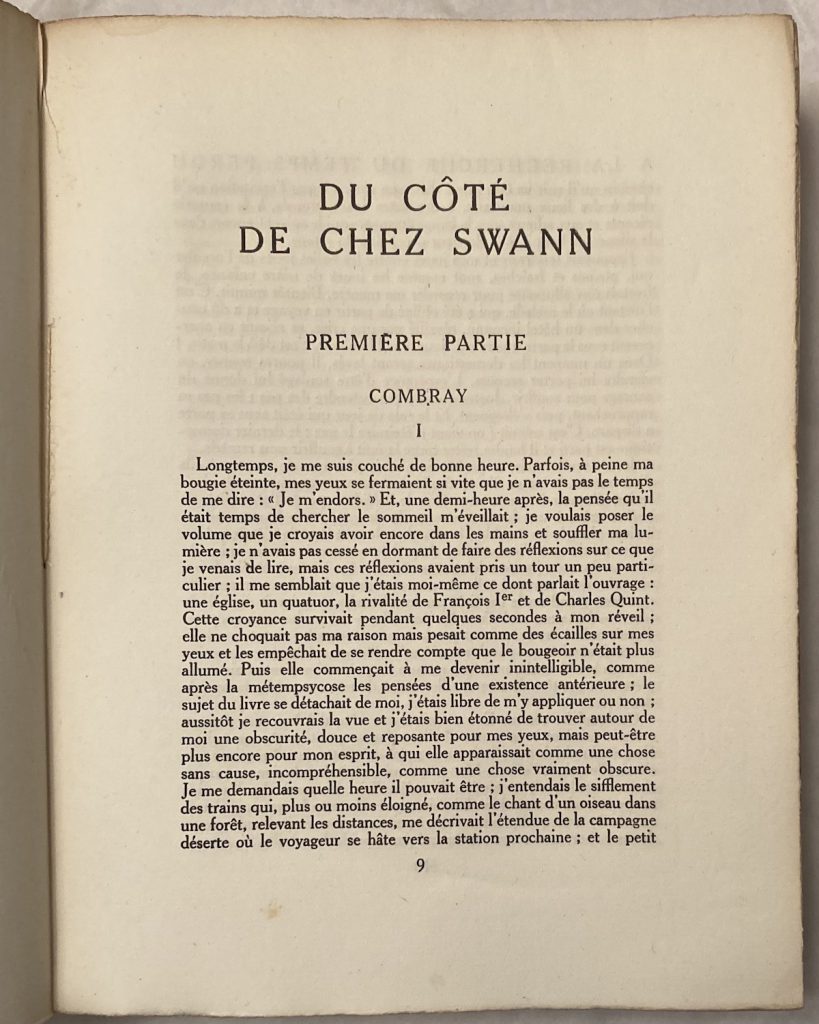
Yesterday 23 March 2024 at 21h07 I finished reading À la recherche du temps perdu, with a mixture of awe and admiration, glee and sadness, exasperation and wonder. And no regrets whatsoever : these characters will kick around in my head for years, and I now see traces and hear echoes of Proust in many books read earlier. I began reading Du côté de chez Swann on 30 October 2021 and at first made steady progress, even writing a preliminary essay, “Monocles, Hawthorn, and Memory, or, A Short Despatch on a Long Book”, for the final issue of Wormwood in the spring of 2022. The third volume was slow going for me at times, as the narrator’s spinning thoughts and whining self-involvement were sometimes too much. Part of the pattern, of course, and often leavened with flashes of humor. The fourth volume is a page-turner, and wrenching. The last 75 pages of Albertine disparue are filled with travel, diplomacy, weddings, deaths, deceptions : a whirl of exterior incident after the cycles of involution of the first two chapters ; and the movement across time, narrative time and historical time, when (for example) the narrator suddenly glimpses Albertine’s Fortuny coat in a painting by Carpaccio in Venice. And then in Le temps retrouvé, the slow motion urgency is compelling. Proust runs up and down the scale from micro to macro, not quite Rudy Rucker transrealism but busy, and even veering toward cosmic materialism. The concluding metaphor of the forest crossroads is a delight, and the transversales connecting all the rides, all the persons of the novel, are a glimpse of Borges’ garden of forking paths decades before that story. There are so many things to say about À la recherche du temps perdu, and I am sure that most of them have already been said elegantly by distinguished scholars. I would re-read this book endlessly if had no other obligations or were a tenured professor, But I am not, and I do have books to write and, like Proust’s narrator, I wonder if there is time or sufficient competence to complete them.
And yet there is one observation I have that might be worthy of relating. In the descriptions of the air raids over Paris and the aeroplanes rising to the skies, Proust assimilates Wagner and the Walkyries into military aviation : « c’était à demander si c’était bien des aviateurs et pas plutôt des Walkyries qui montaient » [one might well ask if it were aviators or in fact the Walkyries who took off]. The book was published in 1927, years after his death, but those passages seem to have been composed close to the time of the events in 1916. Earlier in the passage, the doomed marquis de Saint-Loup talks to the narrator of the beauty of the planes flying in fixed formation (‘faire constellation’ in French), and the greater beauty when the engagements begin, “the moment when they ‘make apocalypse’ and even the stars no longer keep their place”. There was something in the air, certainly : in Images of War (1919), Richard Aldington, who was an early English reader of Proust, has a poem entitled “Barrage”, which begins : “Thunder / The gallop of innumerable Walkyrie impetuous for battle”. My observation is that Proust is the true antecedent of the helicopter cowboys blasting Wagner in Apocalypse Now! And that smell of napalm on the morning is a dark, diabolical, ironic madeleine.
I had better stop there.

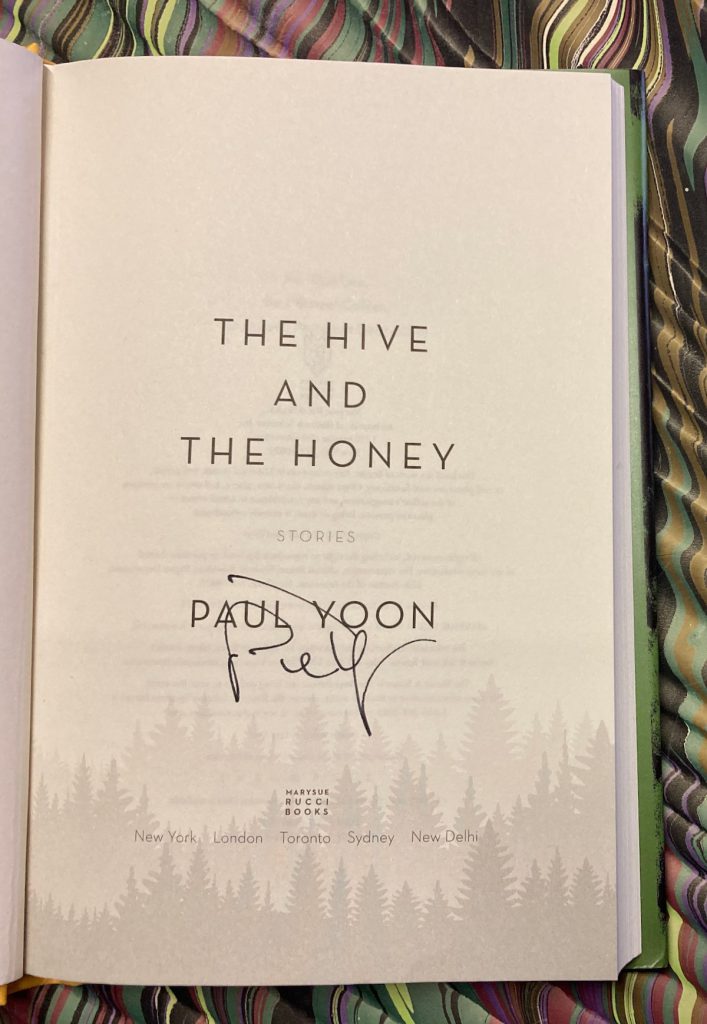

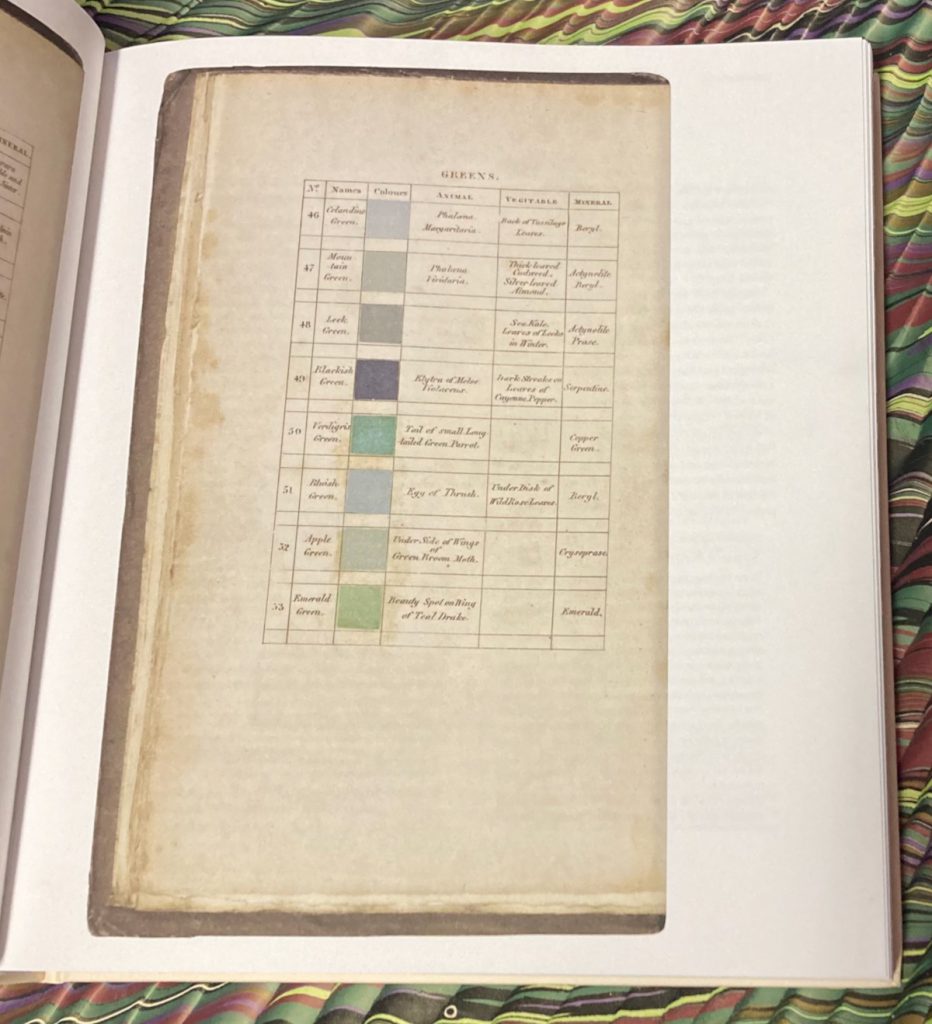
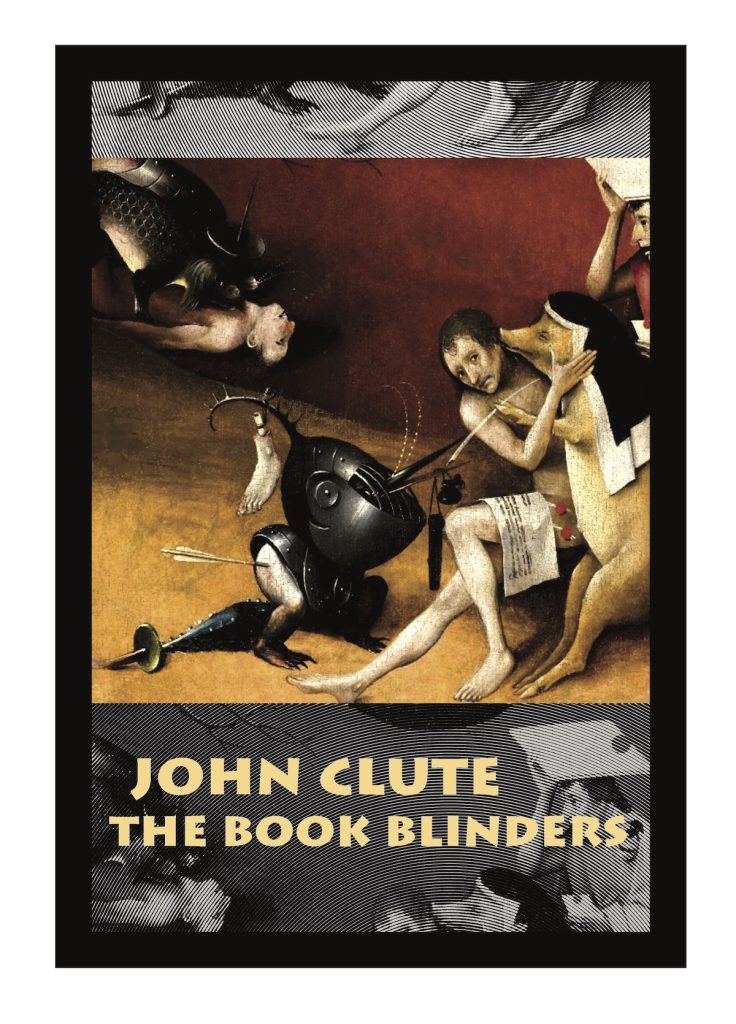
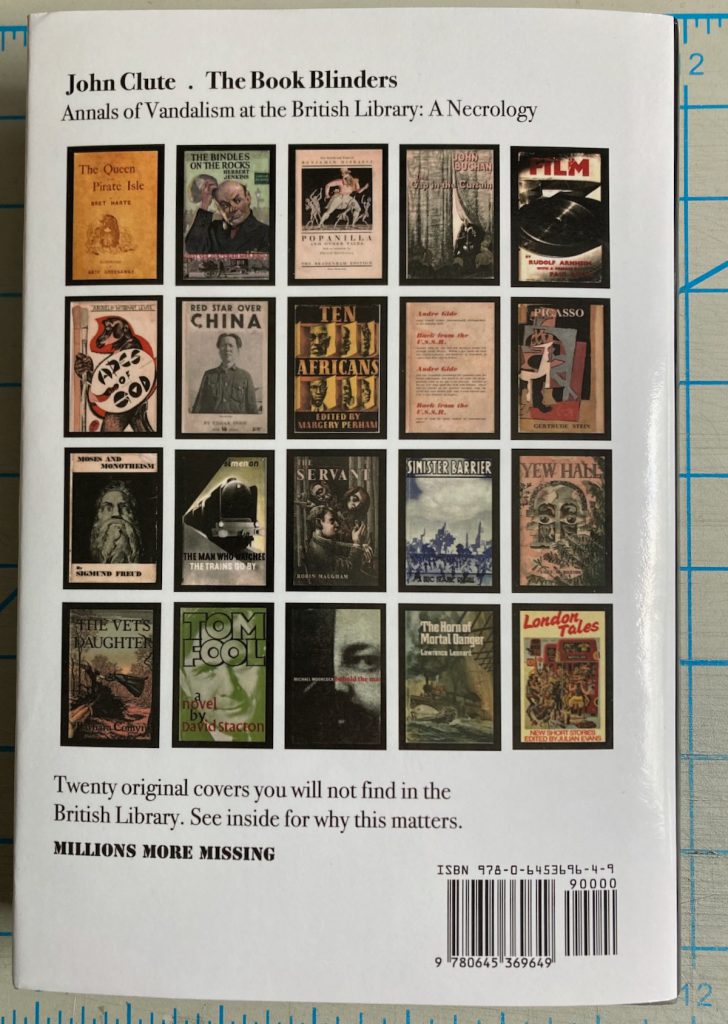
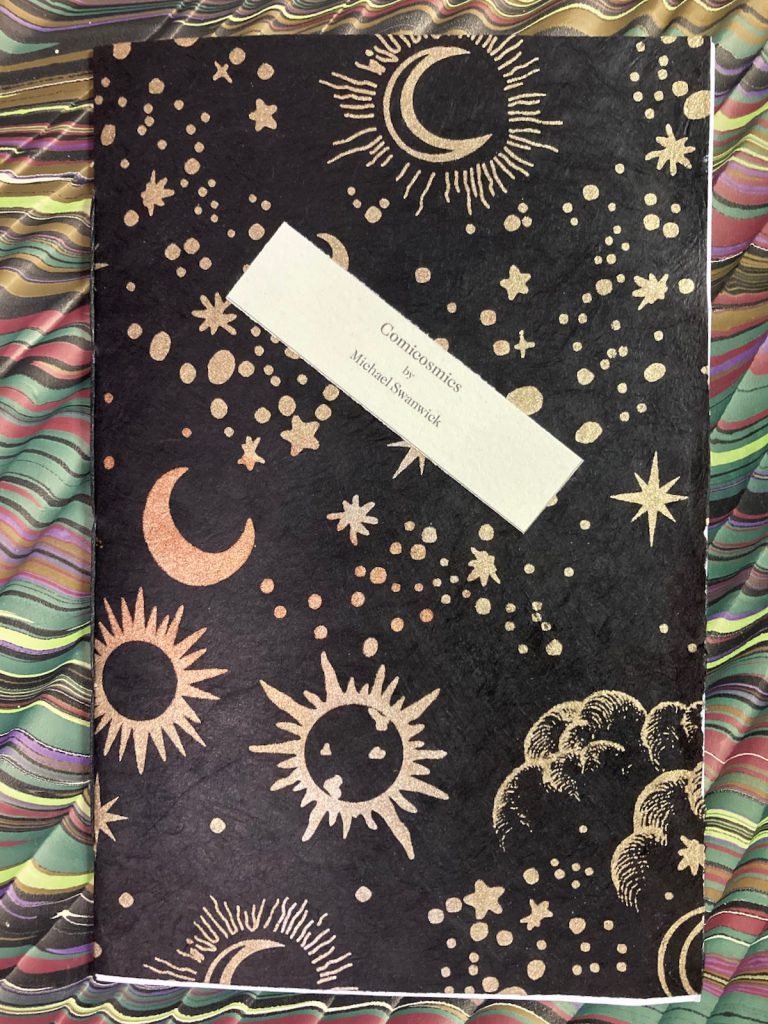
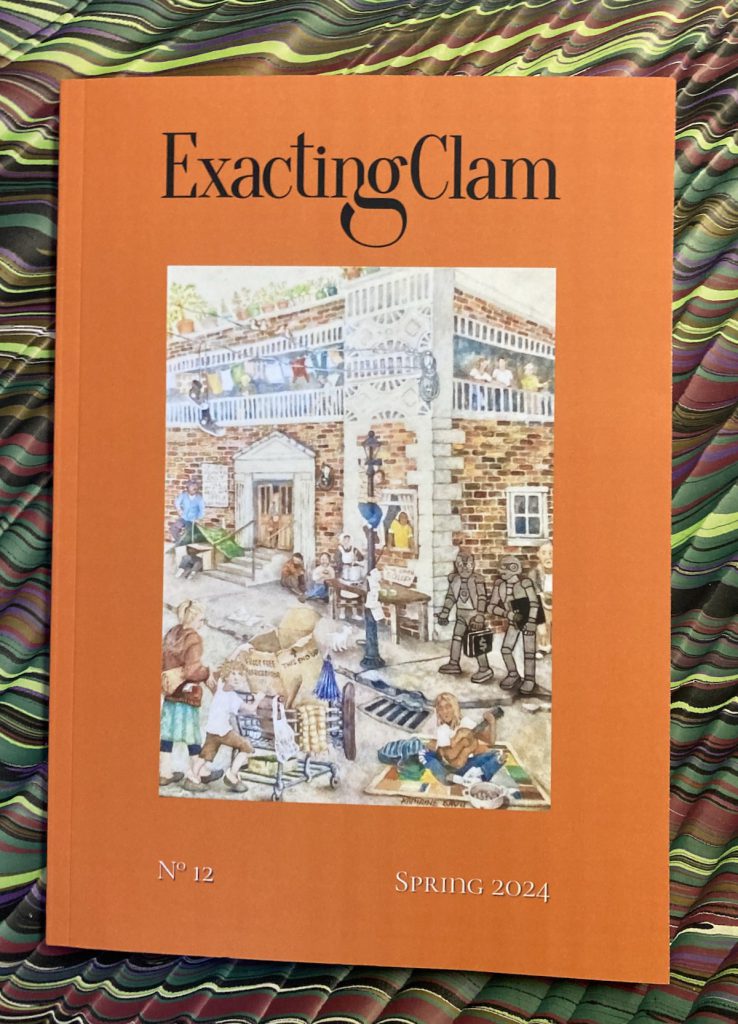
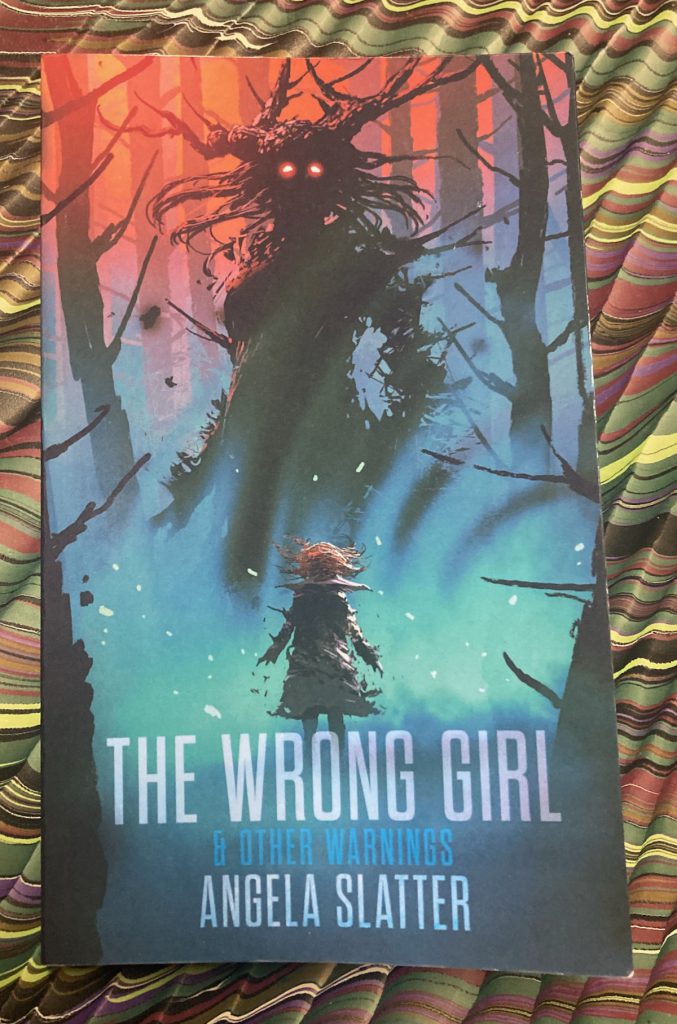
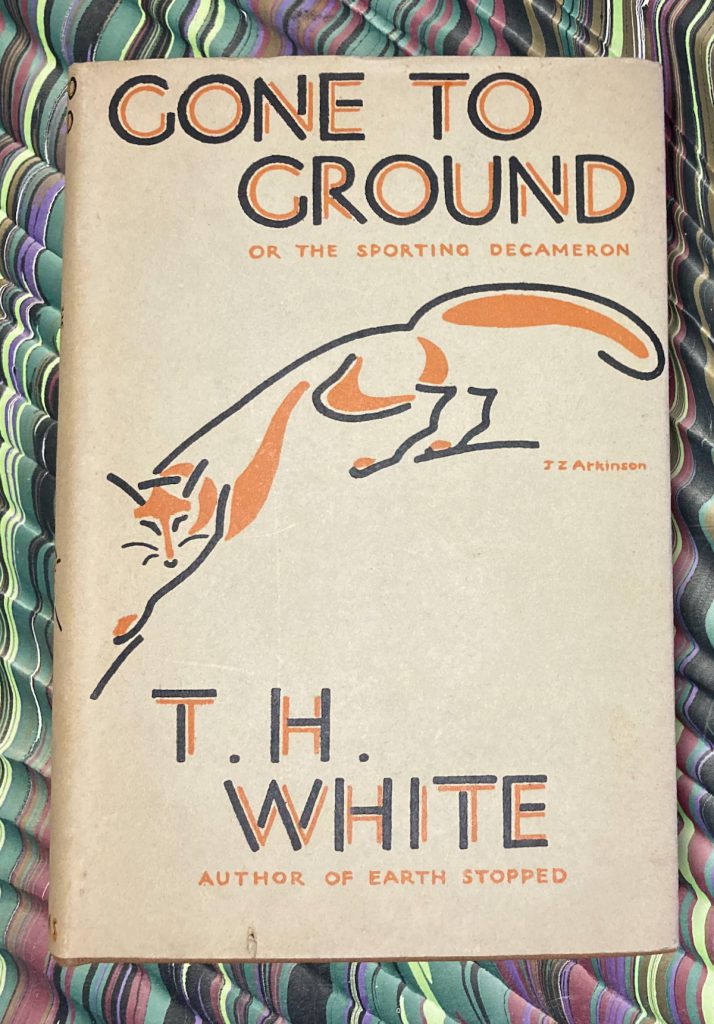
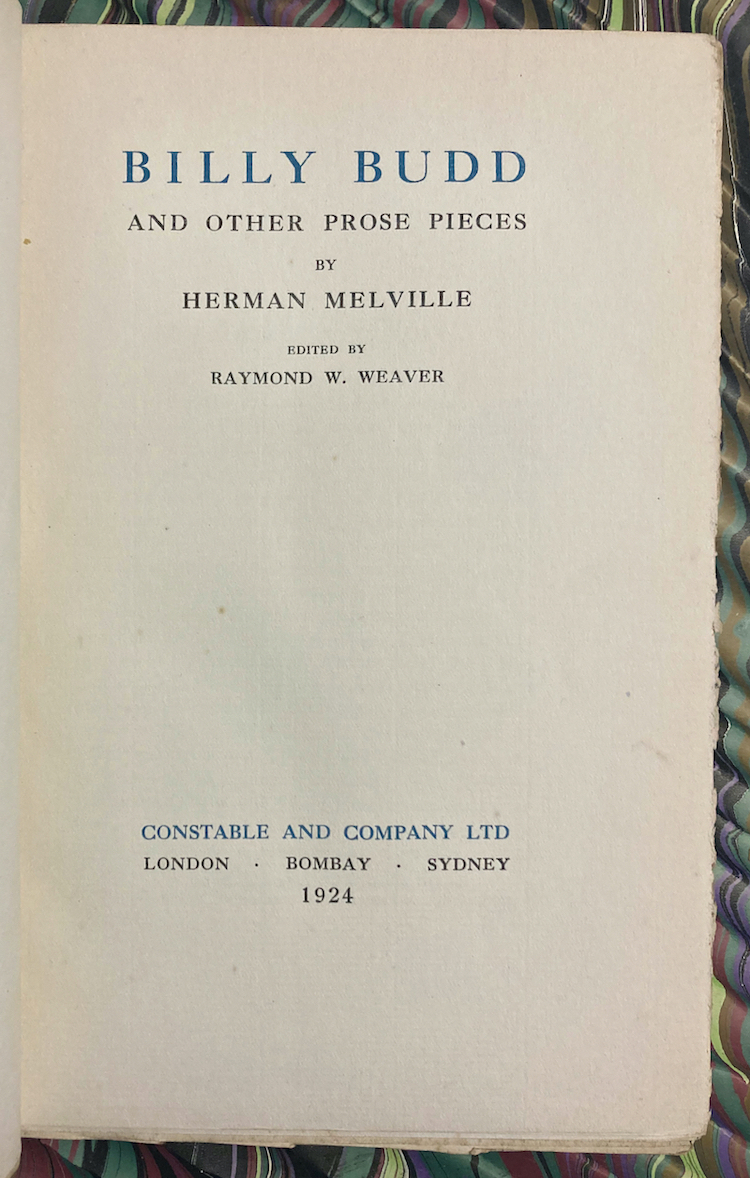 — Herman Melville. Billy Budd and Other Prose Pieces. Constable, 1924. This was Melville’s last book, unpublished at the time of his death and closely connected to his book of verse, John Marr and other sailors (1888). Billy Budd grew out of a note to “
— Herman Melville. Billy Budd and Other Prose Pieces. Constable, 1924. This was Melville’s last book, unpublished at the time of his death and closely connected to his book of verse, John Marr and other sailors (1888). Billy Budd grew out of a note to “